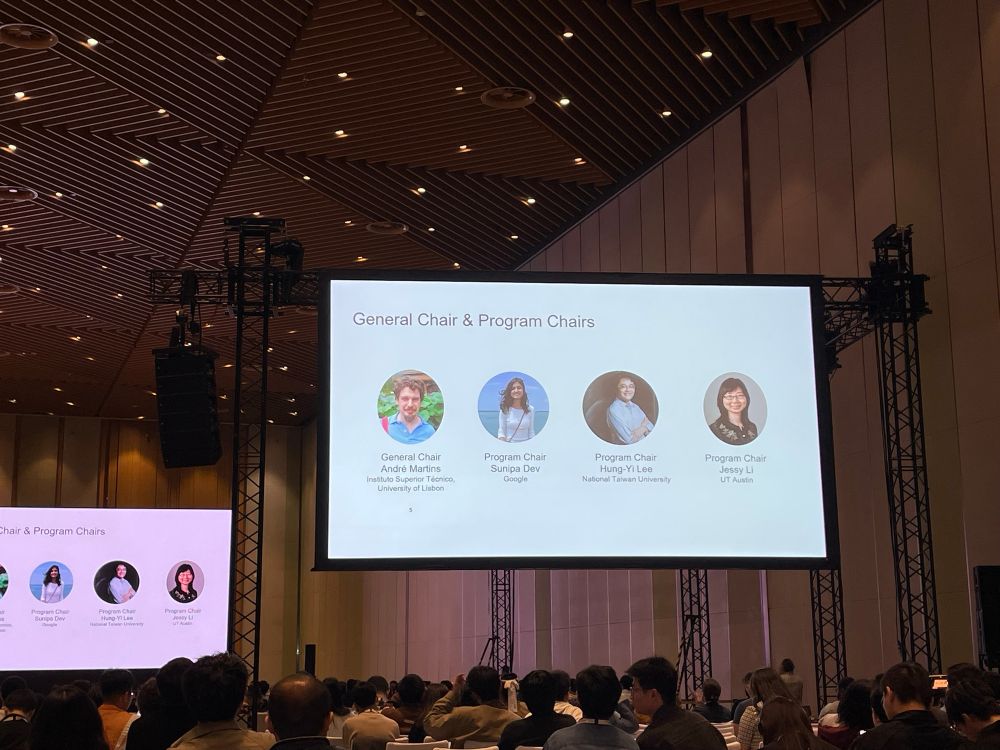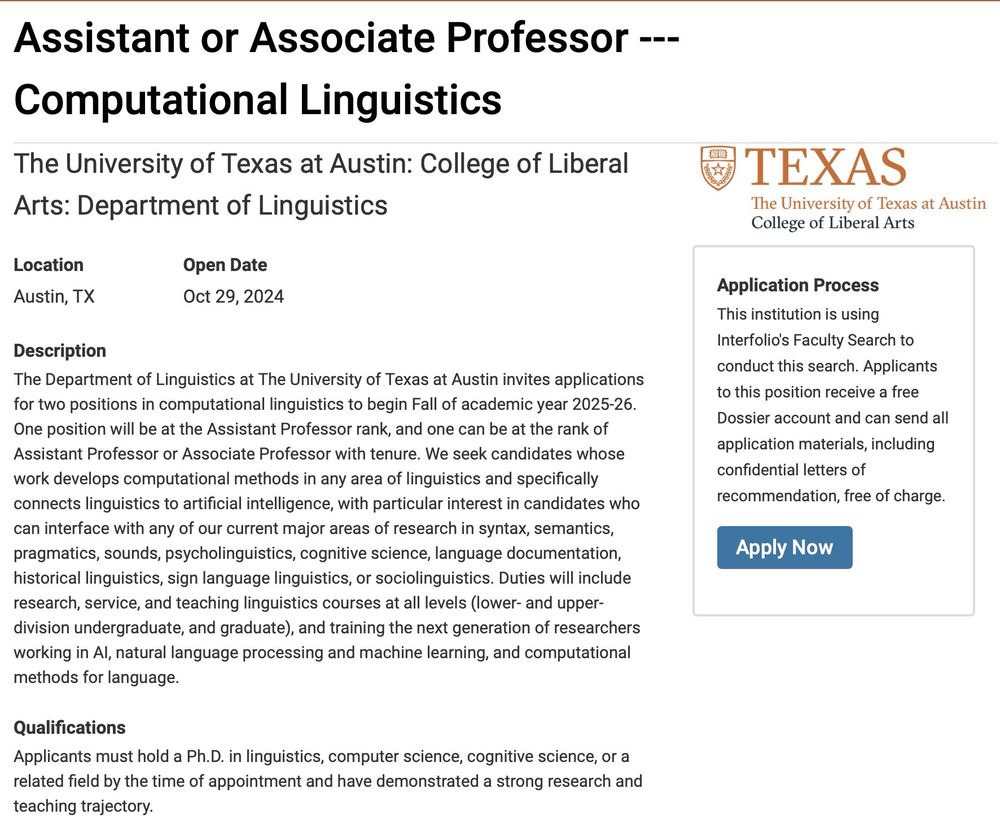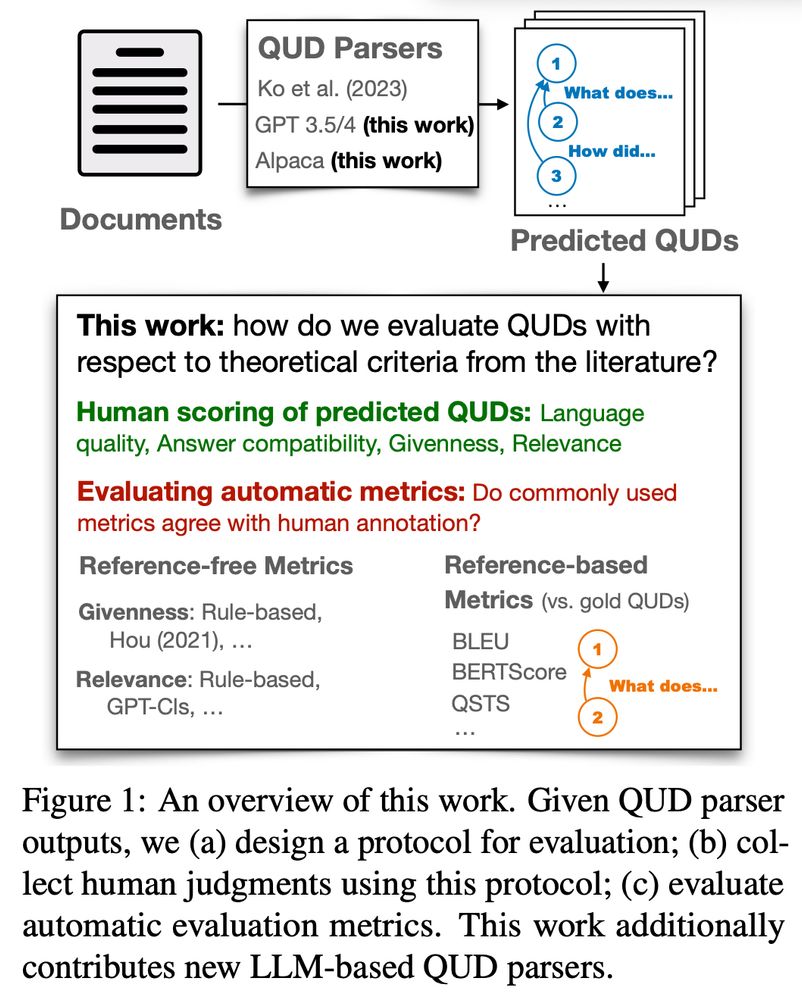Part of UT Computational Linguistics https://sites.utexas.edu/compling/ and UT NLP https://www.nlp.utexas.edu/
(With thanks to Lisa Chuyuan Li who took this photo in Suzhou!)

(With thanks to Lisa Chuyuan Li who took this photo in Suzhou!)
We built **PLSemanticsBench** to find out.
The results: a wild mix.
✅The Brilliant:
Top reasoning models can execute complex, fuzzer-generated programs -- even with 5+ levels of nested loops! 🤯
❌The Brittle: 🧵


We built **PLSemanticsBench** to find out.
The results: a wild mix.
✅The Brilliant:
Top reasoning models can execute complex, fuzzer-generated programs -- even with 5+ levels of nested loops! 🤯
❌The Brittle: 🧵
Check out jessyli.com/colm2025
QUDsim: Discourse templates in LLM stories arxiv.org/abs/2504.09373
EvalAgent: retrieval-based eval targeting implicit criteria arxiv.org/abs/2504.15219
RoboInstruct: code generation for robotics with simulators arxiv.org/abs/2405.20179

Check out jessyli.com/colm2025
QUDsim: Discourse templates in LLM stories arxiv.org/abs/2504.09373
EvalAgent: retrieval-based eval targeting implicit criteria arxiv.org/abs/2504.15219
RoboInstruct: code generation for robotics with simulators arxiv.org/abs/2405.20179
Additionally, we present evidence that both *syntactic* and *discourse* diversity measures show strong homogenization that lexical and cosine used in this paper do not capture.



Additionally, we present evidence that both *syntactic* and *discourse* diversity measures show strong homogenization that lexical and cosine used in this paper do not capture.




First of all, information salience is a fuzzy concept. So how can we even measure it? (1/6)

First of all, information salience is a fuzzy concept. So how can we even measure it? (1/6)
UT has a super vibrant comp ling & #nlp community!!
Apply here 👉 apply.interfolio.com/158280

UT has a super vibrant comp ling & #nlp community!!
Apply here 👉 apply.interfolio.com/158280
👉[Oral] Discourse+Phonology+Syntax2 10:30-12:00 @ Flagler
also w/ Ritika Mangla @gregdnlp.bsky.social Alex Dimakis

👉[Oral] Discourse+Phonology+Syntax2 10:30-12:00 @ Flagler
also w/ Ritika Mangla @gregdnlp.bsky.social Alex Dimakis


Paper arxiv.org/abs/2310.14389 w Hongli Zhan, Desmond Ong


Paper arxiv.org/abs/2310.14389 w Hongli Zhan, Desmond Ong
at 4:30 EST/3:30 CST on Simplifying Medical Texts with Large Language Models! harcconf.org/agenda-monda...

at 4:30 EST/3:30 CST on Simplifying Medical Texts with Large Language Models! harcconf.org/agenda-monda...
arxiv.org/abs/2305.10387
w/ @yatingwu.bsky.social Will Sheffield @kmahowald.bsky.social

arxiv.org/abs/2305.10387
w/ @yatingwu.bsky.social Will Sheffield @kmahowald.bsky.social
Paper: arxiv.org/abs/2310.14520
w/ @yatingwu.bsky.social, Ritika Mangla, @gregdnlp.bsky.social

Paper: arxiv.org/abs/2310.14520
w/ @yatingwu.bsky.social, Ritika Mangla, @gregdnlp.bsky.social

